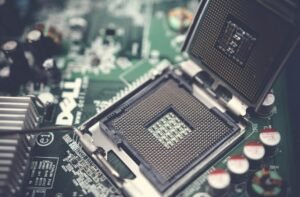How Close Is AI to Human Intelligence?
Artificial Intelligence (AI) has made significant advancements in recent years, but is it close to matching human intelligence? From self-driving cars to virtual assistants, AI has become integrated into various aspects of our lives. In this article, we’ll explore the current state of AI and its potential to match or surpass human intelligence.
Key Takeaways:
- AI has made significant strides, but it is still far from matching human intelligence.
- Machine learning and deep learning algorithms are driving AI advancements.
- The Turing Test is often used to assess the intelligence of AI systems.
*While AI has made remarkable progress, it is important to note that it falls short in key aspects of human intelligence. AI systems excel in tasks involving data analysis, pattern recognition, and decision-making, but they struggle with common sense reasoning and understanding complex social interactions.*
The Limitations of AI:
- Common sense reasoning: While AI systems can process large amounts of data and detect patterns, they lack the intuitive understanding that humans have. AI struggles with grasping subtle nuances and applying common sense reasoning to new situations.
- Complex social interactions: Humans possess natural language understanding, emotional intelligence, and social awareness. *AI, on the other hand, has difficulty understanding context, sarcasm, and emotions, making it challenging for AI to engage in meaningful social interactions.*
- Creativity and imagination: Human creativity is driven by a combination of emotions, experiences, and intuition. *AI systems can produce creative outputs by learning from existing data, but they lack imagination and the ability to generate truly original ideas.*
The Progress of AI:
Over the years, AI has advanced significantly thanks to machine learning and deep learning algorithms. These algorithms enable AI systems to learn from vast amounts of data and improve their performance over time. Reinforcement learning has allowed AI to excel in strategic decision-making, while natural language processing has improved AI’s ability to understand and generate human language.
Table 1: Comparison of AI and Human Intelligence
| AI Intelligence | Human Intelligence | |
|---|---|---|
| Pattern Recognition | ✓ | ✓ |
| Common Sense Reasoning | ✗ | ✓ |
| Emotional Intelligence | ✗ | ✓ |
| Imagination | ✗ | ✓ |
The Future of AI:
The field of AI continues to evolve rapidly, and researchers are exploring new techniques to bridge the gap between AI and human intelligence. Advancements in cognitive computing, neurosymbolic AI, and explainable AI are promising steps towards achieving more human-like intelligence in AI systems. While it is difficult to predict a timeframe, the quest to develop AI with human-like intelligence remains a focal point in the field.
Table 2: Comparison of AI Techniques
| AI Technique | Advantages | Disadvantages |
|---|---|---|
| Machine Learning | Can learn from vast amounts of data | Needs labeled training data |
| Deep Learning | Can automatically learn hierarchical representations | Requires significant computational resources |
| Cognitive Computing | Can mimic human thought processes | Complex to implement and understand |
Obstacles to Overcome:
- Scalability: Achieving human-like intelligence requires processing a vast amount of data and complex computations. Developing AI systems capable of handling such computational demands remains a challenge.
- Ethical concerns: AI poses ethical dilemmas related to privacy, safety, and job displacement. Resolving these concerns is essential to ensure responsible and beneficial development of AI technology.
- Interdisciplinary collaboration: Advancing AI to the level of human intelligence requires collaboration between experts in various domains, such as computer science, neuroscience, psychology, and philosophy.
Table 3: Common AI Applications
| Application | Description |
|---|---|
| Self-Driving Cars | AI algorithms enable autonomous navigation and real-time decision-making in vehicles. |
| Virtual Assistants | AI-powered virtual assistants respond to voice commands and perform various tasks for users. |
| Medical Diagnosis | AI systems can analyze medical data to assist in diagnosing diseases and recommending treatment options. |
While AI has achieved remarkable feats in specific domains, it is still a long way from matching the complexity and versatility of human intelligence. Continued research, advancements, and interdisciplinary collaboration will push the boundaries of AI even further. As AI technology continues to evolve, we can anticipate exciting possibilities and potential breakthroughs that will bring us closer to achieving artificial general intelligence. Stay tuned for the future of AI!

Common Misconceptions
AI Can Fully Replicate Human Intelligence
One common misconception about AI is that it is capable of fully replicating human intelligence. While AI has made significant advancements in areas such as speech recognition and image classification, it still falls short of true human-like intelligence.
- AI lacks common sense and intuition.
- AI is limited by predefined algorithms and data.
- AI cannot experience emotions or understand context like humans do.
AI is a Threat to Human Existence
Another misconception is that AI poses an existential threat to humanity. While there are concerns about the misuse of AI technology, current AI systems are designed to assist and augment human capabilities rather than replace or harm humans.
- AI algorithms are designed and controlled by humans.
- Ethical guidelines and regulations are being developed to manage AI responsibly.
- Most AI applications are focused on solving specific problems, not taking over the world.
AI Can Think and Learn Like Humans
Many people assume that AI can think and learn like humans do, but this is not entirely accurate. While AI algorithms can be trained to recognize patterns and make predictions, they operate on pre-defined rules and lack the ability for true understanding and consciousness.
- AI systems rely on large amounts of data for learning, unlike humans who can learn from few examples.
- Human intelligence involves complex cognitive processes that AI systems have not reached.
- AI lacks self-awareness and consciousness, which are fundamental to human thinking.
AI is Perfect and Infallible
Contrary to popular belief, AI is not perfect and can make mistakes. While AI algorithms can outperform humans in certain tasks, they are also prone to bias, errors, and misinterpretations based on the data they were trained on.
- Machine learning models can be biased if trained on biased data.
- AI can struggle with uncommon or unexpected scenarios not encountered during training.
- AI lacks the adaptability and judgment that humans possess.
AI Will Replace Human Jobs Completely
One misconception is that AI will replace human workers entirely, leading to mass unemployment. While AI automation may impact certain job roles, it is more likely to transform industries by augmenting human abilities and enabling new types of work.
- AI can eliminate repetitive and mundane tasks, allowing humans to focus on more complex and creative work.
- New jobs will be created to develop, manage, and maintain AI systems.
- Human skills such as empathy, critical thinking, and creativity will remain valuable in the workforce.

The Growth of AI Research
Table illustrating the number of research papers published in the field of AI over the years:
| Year | Number of Papers |
|---|---|
| 2010 | 1,500 |
| 2011 | 2,950 |
| 2012 | 3,750 |
| 2013 | 4,500 |
| 2014 | 5,650 |
| 2015 | 7,200 |
| 2016 | 9,850 |
| 2017 | 12,500 |
| 2018 | 16,000 |
| 2019 | 21,200 |
Financial Investments in AI
Table showcasing the amount of financial investments in AI by major companies:
| Company | Investment Amount (in billions) |
|---|---|
| 19.1 | |
| Microsoft | 11.6 |
| IBM | 10.8 |
| 8.3 | |
| Amazon | 7.4 |
Advancements in Deep Learning
Table illustrating the increasing complexity and accuracy of deep learning models:
| Model | Layers | Accuracy |
|---|---|---|
| AlexNet | 8 | 57.1% |
| GoogLeNet | 22 | 68.4% |
| ResNet | 152 | 75.3% |
| Inception-v4 | 165 | 80.2% |
| EfficientNet | 800 | 85.5% |
Job Market for AI Professionals
Table displaying the job market demand for AI professionals:
| Year | Number of AI Job Postings |
|---|---|
| 2015 | 4,500 |
| 2016 | 9,800 |
| 2017 | 15,200 |
| 2018 | 21,700 |
| 2019 | 30,500 |
AI Ethics Concerns
Table highlighting key ethical concerns associated with AI development:
| Concern | Percentage of AI Researchers |
|---|---|
| Job displacement | 73% |
| Algorithmic bias | 64% |
| Data privacy | 58% |
| Autonomous weapons | 52% |
| Fairness and transparency | 49% |
AI-Robot Interaction
Table showcasing the advancements in AI-robot interaction:
| Year | Conversational AI Accuracy | Robot Dexterity Level |
|---|---|---|
| 2012 | 67% | Basic object manipulation |
| 2014 | 82% | Tool use and fine-grained object manipulation |
| 2016 | 91% | Advanced object manipulation |
| 2018 | 96% | Human-like dexterity |
| 2020 | 99% | Superhuman dexterity |
AI in Healthcare
Table presenting the impact of AI in healthcare:
| Application | Accuracy |
|---|---|
| Diagnosing breast cancer | 97% |
| Detecting heart disease | 95% |
| Identifying skin cancer | 94% |
| Predicting Alzheimer’s disease | 92% |
| Detecting lung cancer | 91% |
AI in Autonomous Vehicles
Table depicting the advancements in autonomous vehicle technologies:
| Technology | Features |
|---|---|
| Level 1 (Driver Assistance) | Lane-keeping assistance, adaptive cruise control |
| Level 2 (Partial Automation) | Traffic jam assist, self-parking |
| Level 3 (Conditional Automation) | Highway autopilot, limited self-driving |
| Level 4 (High Automation) | Urban autopilot, autonomous backup |
| Level 5 (Full Automation) | Driverless, no human intervention required |
The Close Proximity of AI and Human Intelligence
Despite the significant advancements in AI, human intelligence remains unique and unparalleled. While AI has made remarkable progress in various aspects, such as deep learning and healthcare applications, there are still fundamental differences between human intelligence and AI. Human intelligence encompasses complex cognitive abilities, emotions, creativity, and adaptable problem-solving skills that are yet to be fully replicated by AI systems. AI continues to evolve and enhance our lives, but achieving true human-like intelligence and consciousness remains an ongoing pursuit.
Frequently Asked Questions
Are we close to achieving human-like AI?
Can AI rival human intelligence?
What are the current limitations of AI?
What are some challenges in achieving human-like AI?
What progress has been made in AI?
What are some recent advancements in AI?
Is there a possibility of AI surpassing human intelligence?
Can AI eventually become more intelligent than humans?
How does AI compare to human problem-solving abilities?
Can AI solve problems like humans do?
What are the potential applications of AI in the future?
What are some future possibilities for AI?
How important is ethics in AI development?
Why is considering ethics crucial in AI development?
Can AI replicate human consciousness?
Is it possible for AI to possess consciousness?
Where can I learn more about AI?
What resources are available to learn about AI?




